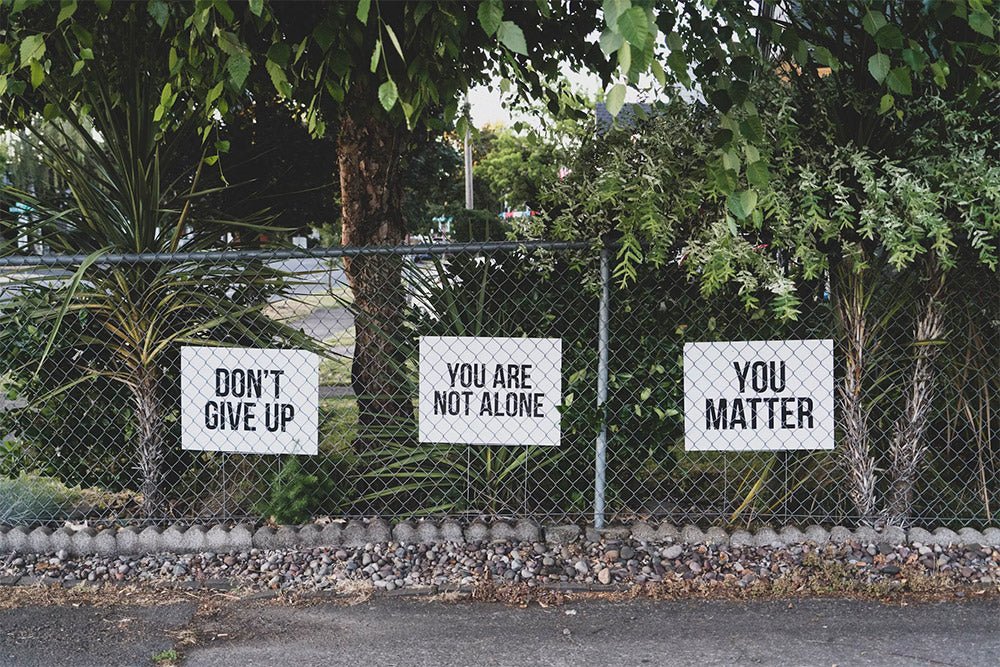
Poor mental health isn’t always obvious, but there are many signs you can look out for—learn more.
Our mental health can change in response to many common factors–chemical imbalances, lifestyle choices, and life events too. Sometimes our mental health is doing great, and sometimes it falls flat. Understanding what it looks like when someone’s mental health is getting worse can save lives, which is why it is so important to know the signs.
Recognizing the Signs of Poor or Deteriorating Mental Health
Mental health changes should be expected, especially since they often arrive without notice. You may not know what this looks like in yourself or a loved one.
Let’s talk through common signs that someone is struggling with their mental health.
A Sudden Change in Personality or Attitude
Our mental health impacts us on all levels, both in our bodies and in our minds. When someone’s mental health begins to change, it is common for their attitude and even personality to change with it. The reality is that mental health impacts our ability to feel like ourselves, so if you start to feel like you’re not quite yourself, your mental health may be the reason.
Losing Interest in Things You Used to Love
We all have passions, and over time, those passions may change. Losing interest in something you used to really enjoy doesn’t have to be a giant red flag. Sometimes, it is a normal fact of life. However, if it happens without warning and is linked to other symptoms on this list, your low interest may be linked to your mental health.
Struggling to Feel Connected to Others
Poor mental health can make us grapple with ourselves and others. We may not feel as comfortable as we once did, and this can lead us to feel less comfortable connecting with others. It is actually quite normal to feel like you’re losing connections or can’t quite relate to the people around you when your mental health takes a turn for the worst.
Having Lower Energy or Wanting to Sleep Constantly
Energy levels and mental health are strongly interconnected. The reality is that having poor mental is very physically and mentally draining. As a result of this, it is very common for people to feel absolutely exhausted all the time. Worse, it can often feel like standard remedies, like sleep or caffeine, don’t help at all. When this happens, you may find yourself feeling like you just can’t truly wake up or be “on” for your daily life.
Feeling More Defensive or Like You Are Under Attack
Feeling low can make us feel more vulnerable inside, opening us up to feeling more defensive. If everything the people around you say feels like an attack, it may not be them—it may be a result of your declining mental health. We are more likely to interpret things negatively when our mental health gets worse.
Feeling Isolated or Alone
Having poor mental health is a very isolating experience. It can leave us struggling to feel like anyone in the world understands us. When this happens, we often feel very isolated and alone, as if it is only us and our negative feelings.
Sadly, this tends to worsen mental health. The reality is that socializing and having social support can really improve mental health. Unfortunately, we may push others away and then end up feeling worse for feeling alone. It is important to reach out when you’re feeling down rather than sinking into it yourself.
Struggling to Identify How You Feel
It is disorienting to have poor mental health, often leaving us feeling like we are swimming through murky water. If you find that you don’t really know how you feel about anything, it might be because of your mental health. While you may normally feel a certain way about something, being able to see through poor mental health isn’t always easy.
Feeling More Uncertain About Your Future
Losing sight of the future is a very common symptom of worsening mental health. When we feel bad inside, it can be very difficult to imagine a future where things are better. Unfortunately, this feeling can sometimes worsen and build. Not seeing a future for yourself may mean it is time to connect with a mental health professional.
Ending Up Stuck in Low Moments
We all experience low moments, and they often impact us for the worst. This is a fact of life, and it can be very normal. Being unable to bounce back from these moments, however, is not healthy. It is important to recognize if it feels like you’re fixating on a low point. It may tell you a larger story.
Experiencing Restlessness or Discomfort
The body is heavily impacted by our mental health, and this can lead to physical feelings of restlessness and discomfort. You may feel like you can’t really engage with anything or like there is nothing you can connect with. Sometimes, mental health shows up through physical symptoms, like stomach aches, headaches, or other forms of physical pain.
Difficulty Focusing, Even on Simple Tasks
A mind that is stuck trying to figure itself out is a mind that does not have room for much else. It takes a lot of mental energy to cope with poor mental health, which can sometimes impact your ability to focus.
Help Yourself and Others: Know the Signs and When to Take Action
Knowledge is power, especially when it comes to showing compassion to yourself and others. If you’re looking to support good mental health in your life and the lives of those around you, it is essential to know the signs and take action when it is necessary.
To learn more, explore oursuicide prevention non-profit and how we help support others every day.
Leave a comment (all fields required)
Comments will be approved before showing up.







